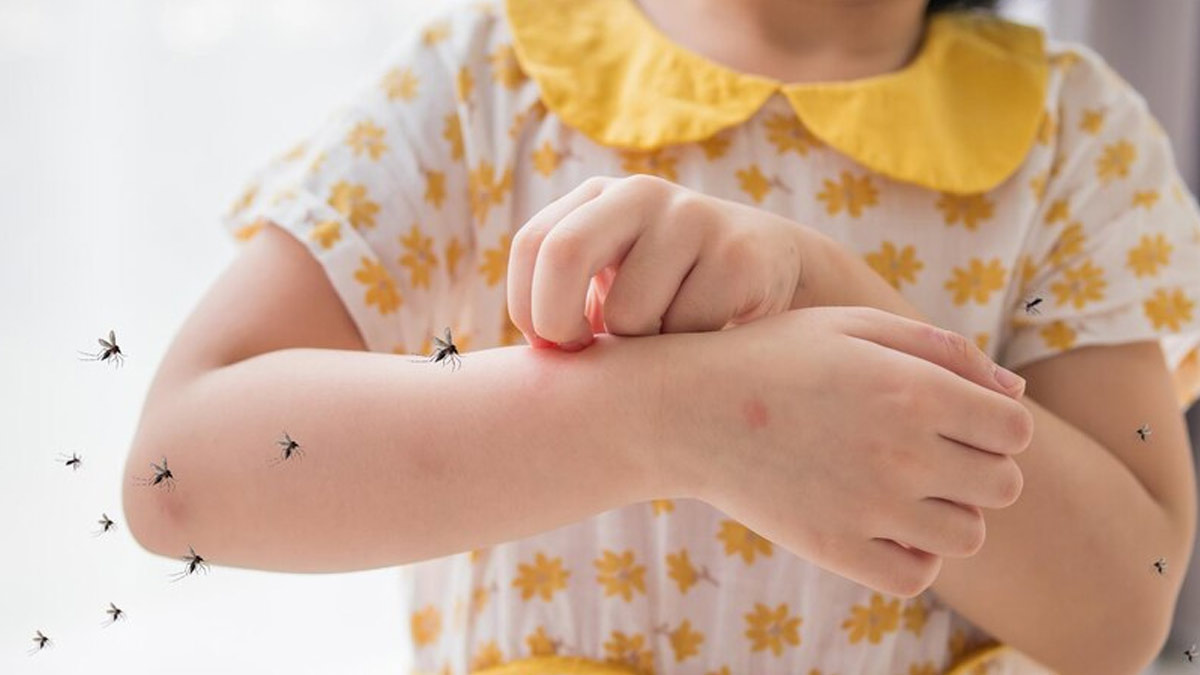
The capital city of Telangana, Hyderabad witnessed a worrying rise in chikungunya cases among children earlier this month. This mosquito-borne viral disease, primarily transmitted by Aedes Aegypti and Aedes albopictus mosquitoes, is causing significant concern among parents and healthcare professionals.
Table of Content:-
Dr Kishore Kumar, Paediatrician and Neonatologist, Cloudnine Group of Hospitals, Bengaluru, sheds light on the situation and offers essential advice on protecting children during this vulnerable season.
"Change of weather usually brings in some infections in children as children under 5 years are not mature immunologically and are susceptible to infections," explains Dr Kumar. "Each seasonal change brings some viruses or bacteria into active mode causing infections. The monsoon season can bring a variety of health challenges for children due to increased humidity, stagnant water, and the proliferation of disease-causing organisms, especially viruses and bacteria."
Chikungunya, a viral disease transmitted by mosquitoes, shares some of its vectors with other dangerous viruses like Zika and Dengue. These mosquitoes are most active during the daytime, making prevention efforts crucial.
Prevention Strategies

Dr Kumar emphasises several preventive measures that parents can adopt to safeguard their children:
Use Mosquito Repellents and Nets: "Mosquito repellents and the use of mosquito nets for windows and doors in the house are effective barriers against mosquito bites," advises Dr Kumar. Ensuring that living spaces are well-protected from mosquitoes can significantly reduce the risk of transmission.
Avoid Water Stagnation: Stagnant water is a breeding ground for mosquitoes. "Avoid stagnation of water in and around the house," says Dr Kumar. Regularly check and empty containers, pots, and other potential water-collecting items to eliminate breeding sites.
Wear Protective Clothing: "Wearing simple cotton clothes with full arms and legs covered can prevent mosquito bites," recommends Dr Kumar. Dressing children in long sleeves and pants provides an additional layer of defence.
Avoid Endemic Areas: If possible, avoid travelling to areas known to have outbreaks of mosquito-borne diseases. This can help reduce the likelihood of exposure.
Also read: Chikungunya Virus Infection: Know About Its Transmission And Treatment
Vaccination and Future Prospects

While prevention remains key, advancements in vaccination offer hope for the future. "There is a vaccine for Chikungunya – the first one to have been approved only in November 2023 by FDA in the USA - manufactured by Valneva and called IXCHIQ," notes Dr Kumar. However, this vaccine is currently recommended only for people above 18 years in high-risk areas or during outbreaks. "This vaccine is currently not available in India or elsewhere," he adds, highlighting the need for continued vigilance and preventive measures.
Also read: Chikungunya Vaccine Shows Highly Positive Results in Early Trials
Common Monsoon Illnesses and Care
Apart from chikungunya, the monsoon season can bring a host of other health challenges for children. Increased humidity and waterlogging create an environment ripe for the spread of infections. Parents should be aware of common illnesses such as viral fevers, diarrhoea, and respiratory infections, and take appropriate steps to prevent and manage them.
Regular handwashing, maintaining a clean environment, ensuring safe drinking water, and seeking timely medical attention are crucial in keeping children healthy during the rainy season.
As Telangana grapples with the rise in chikungunya cases, following expert advice and adopting preventive measures can help protect the youngest and most vulnerable members of society.
Also watch this video
How we keep this article up to date:
We work with experts and keep a close eye on the latest in health and wellness. Whenever there is a new research or helpful information, we update our articles with accurate and useful advice.
Current Version